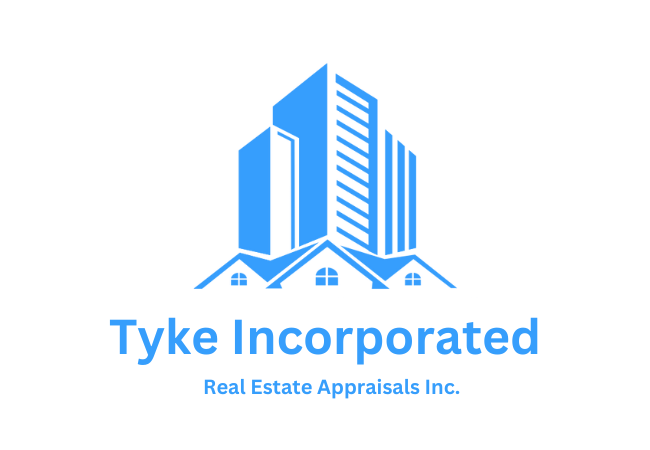Home Real Estate Appraisals in Tampa Bay, FL
Contact UsHome Real Estate Appraisals in Tampa Bay, FL
In the dynamic realm of Tampa Bay, FL, real estate, understanding the value of your home is paramount, and Tyke Appraisals emerges as the premier choice for home real estate appraisals in Tampa Bay, FL. Our mastery in property valuation, combined with an acute awareness of Tampa Bay’s ever-changing property landscape, ensures that every appraisal report we deliver is not only comprehensive but also meticulously tailored to suit your specific needs. Whether you are a homeowner aiming to grasp the true value of your property, a potential buyer keen on making informed decisions in the bustling market, or a financial institution requiring precise valuations, Tyke Appraisals is synonymous with excellence and reliability. Rely on our unwavering dedication and profound understanding of the local market to equip you with the critical insights needed for making empowered and confident real estate decisions in Tampa Bay.


What You Need To Know About Home Real Estate Appraisals in Tampa Bay, FL
Understanding home real estate appraisals in Tampa Bay, FL, is key, especially recognizing that an appraisal is an independent evaluation of a property’s value by a certified professional. This valuation is crucial for various real estate transactions, whether buying, selling, refinancing, or obtaining financing. Homeowners should be aware of how aspects such as their property’s size, condition, location, comparable sales in the area, and current market dynamics can influence the appraised value. Taking steps to ensure your home is tidy, well-maintained, and highlighting any recent improvements can positively impact the appraisal. If you’re navigating the appraisal process for any reason, reaching out to Tyke Appraisals can provide you with expert guidance and help ensure your property’s value is accurately assessed. Tyke Appraisals offers a trusted partnership in simplifying and effectively managing the appraisal process, armed with a thorough knowledge of the Tampa Bay real estate market.
Initial consultations are always free regarding home real estate appraisals in Tampa Bay, FL. Contact us today and let’s get started.
Get a Free Consultation 941-999-7699
Frequently Asked Questions About Our Home Real Estate Appraisals in Tampa Bay, FL
What Is An Appraisal?
An appraisal is a formal evaluation process conducted to determine the value of a property. This assessment typically begins with an inspection aimed at forming an opinion of the property’s worth. The appraisal process commonly employs three main approaches to value. Firstly, the Cost Approach calculates the expense of replacing the property’s improvements, accounting for factors like depreciation, and then adds the land value. Secondly, the Sales Comparison Approach involves analyzing recently sold similar properties in close proximity to establish a comparable value. Widely regarded as the most accurate method, this approach serves as a key indicator of a property’s value. Lastly, the Income Approach, though less frequently used in residential appraisals, assesses a property’s value based on the income it generates for potential investors. Overall, an appraisal utilizes these methods to provide an informed estimate of a property’s value.
What Does An Appraiser Do?
At Tyke Appraisals, our primary focus is delivering impartial and expert evaluations of property value to facilitate financial transactions. Our appraisers meticulously conduct formal analyses, presenting their unbiased opinions in comprehensive reports. Trust Tyke Appraisals to provide the professional expertise you need for informed decision-making in your real estate endeavors.
What Are The Benefits Of Having A Home Appraisal?
For residential appraisal services from Tyke Appraisals, there are numerous compelling reasons to acquire an appraisal report. While common motives include facilitating real estate transactions and mortgage processes, additional benefits abound. These encompass securing loans, mitigating tax burdens, establishing insurance replacement costs, contesting property tax assessments, navigating estate settlements, gaining competitive edges in property acquisitions, determining fair selling prices, safeguarding rights in condemnation cases, meeting governmental appraisal requirements, and providing crucial support in potential legal proceedings. Count on Tyke Appraisals to deliver thorough and professional appraisal services tailored to your residential property valuation needs.
What Makes An Appraisal Different From A Home Inspection?
Unlike an appraisal, which provides an opinion of value for a property, a home inspection does not involve valuation and utilizes different documentation. Typically conducted by a third-party inspector, a home inspection focuses on assessing the structural integrity and condition of various components of the property, ranging from the roof to the foundation. This inspection covers areas such as the heating system, central air conditioning (where applicable), plumbing, electrical systems, roofing, attic, insulation, walls, windows, doors, foundation, basement, and overall visible structure. While an appraisal determines the monetary worth of a property, a home inspection evaluates its physical condition and identifies any potential issues.
What's The Difference Between An Appraisal And A Comparative Market Analysis (CMA)
While a CMA relies on loosely defined trends, an appraisal draws upon valid comparable sales, considering crucial factors such as location and construction values to determine an accurate valuation. Whereas a CMA offers a rough estimate, an appraisal provides a meticulously documented and defensible opinion of value.
However, the most significant disparity lies in the individuals behind the reports. A CMA is typically prepared by a real estate agent, whose grasp of the market and valuation concepts may vary. In contrast, an appraisal is crafted by a licensed, certified professional dedicated to the valuation of properties. Moreover, the appraiser maintains independence, with no vested interest in the property’s value, unlike the real estate agent, whose income is linked to it.
What Does An Appraisal Report Contain?
The content of an appraisal report is carefully crafted to ensure accuracy and credibility. Each report is custom-tailored to encompass vital components, including the identification of the client and intended users, clarification of the report’s purpose and intended use, definition of the type of value reported, specification of the effective date of the appraiser’s opinions, and a detailed description of relevant property characteristics. Additionally, the report discloses all known easements, restrictions, encumbrances, leases, and other pertinent factors, while also addressing any division of interest and documenting the scope of work undertaken to complete the assignment.
How Can I Assure That The Valued Indicated Is Valid?
When communicating an appraisal report, each appraiser ensures the following:
- The appropriateness of the information analysis utilized in the appraisal.
- The absence of significant errors of omission or commission, whether individually or collectively.
- That appraisal services were provided with due diligence and care, without negligence.
- The communication of a credible and supportable appraisal report.
In most states, real estate appraisers are required to be state licensed or certified. These licensed or certified appraisers undergo rigorous training to provide unbiased opinions based on extensive education and experience requirements. To attain licensure or certification, appraisers must fulfill stringent educational and experiential criteria. Moreover, they must adhere to a strict industry code of ethics and comply with national standards of practice for real estate appraisal. Enforcement of the Uniform Standards of Professional Appraisal Practice (USPAP) ensures adherence to rules for developing an appraisal and reporting its results, further guaranteeing the reliability of the appraisal process.
How Are Appraisers Certified?
The process of appraiser certification is crucial. While regulations concerning licensing and certification for Real Estate Appraisers differ from state to state, the general procedure typically involves extensive coursework, examinations, and practical experience. Upon obtaining a license, appraisers must undertake continuing education courses to maintain their licensure up-to-date.
Who Do Appraisers Work For?
Appraisers commonly work with lenders to assess the value of real estate involved in loan transactions. Additionally, these professionals offer their expertise in litigation cases, tax matters, and investment decisions, providing valuable opinions and insights.
What Information Does An Appraiser Use To Estimate Value?
Acquiring information is a fundamental aspect of the appraiser’s role. This information can be categorized into Specific and General data. Specific data pertains directly to the property itself, including its location, condition, amenities, size, and other specific details that the appraiser gathers during an inspection.
On the other hand, General data is sourced from various channels. Local Multiple Listing Services (MLS) offer valuable data on recently sold properties, which can serve as comparables. Tax records and public documents provide concrete evidence of actual sales prices within the market. Flood zone data, crucial for certain properties, is obtained from reliable sources like FEMA data outlets, such as Metro Appraisals’ InterFlood product. Additionally, the appraiser leverages their own past experiences in creating appraisals for similar properties within the same market, further enriching the pool of information used in the valuation process.
Why Do I Need A Professional Appraisal?
Whenever the value of your residential property plays a pivotal role in a significant financial decision, an appraisal proves invaluable. If you’re selling your home, an appraisal assists in setting the most suitable value. Conversely, if you’re purchasing a property, it safeguards against overpaying. In situations like estate settlements or divorces, an appraisal ensures equitable division of property. Given that a home often represents the largest financial asset for many individuals, understanding its true value empowers you to make informed financial decisions.
What Is PMI? How Do I Get Rid Of It?
PMI, or Private Mortgage Insurance, serves to protect lenders in cases where a home is purchased with a down payment of less than 20%. As your home equity reaches 20%, you can take steps to remove PMI, allowing you to save money starting right away.
What Do I Need Prepared For An Appraiser?
Typically, the initial step in most residential appraisals involves a home inspection conducted by the appraiser. During this phase, the appraiser will visit your home to measure its dimensions, assess the layout of interior rooms, verify the general condition of the property, and capture several photographs for inclusion in the appraisal report. To assist the appraiser, ensure easy access to the exterior of the house by trimming bushes and clearing any obstacles that may impede measuring the structure. Inside the home, ensure accessibility to items such as furnaces and water heaters. Additionally, providing items such as a survey of the house and property, a deed or title report containing the legal description, a recent tax bill, a list of any personal property to be included with the house, and copies of the original plans can facilitate a more accurate appraisal in a shorter period.
Who Owns The Appraisal Report
Typically, in real estate transactions, the lender initiates the appraisal process. While the home buyer covers the cost of the report as part of the closing expenses, the lender retains the authority to utilize the report or its contents. Although the home buyer receives a copy of the report, usually included with other closing documents, they are not permitted to utilize the report for any other purpose without obtaining permission from the lender.
An exception to this standard arises when a homeowner directly contracts an appraiser. In such instances, the appraiser may specify the permissible uses of the appraisal, such as for purposes like PMI removal, estate planning, or tax challenges. If no specific stipulations are made, the homeowner retains the freedom to use the appraisal for any purpose.
Which Home Renovations Add The Most To The Price?
Different markets place different values on various amenities. For instance, installing a central air conditioner in Houston, Texas, may significantly increase the property’s value, whereas the same renovation in Buffalo, New York, might not have as much impact.
As a general guideline, kitchen renovations tend to offer the highest return on investment. According to a national survey, kitchen remodels typically yield an average return of 88% of the investment. In practical terms, this means that a $10,000 kitchen remodeling project could potentially increase the home’s value by approximately $8,800. Following kitchens, bathrooms rank second in terms of return, with an average return of 85%.
Initial consultations are always free. Contact us and let’s get started.
Get a Free Consultation 941-999-7699
Ensure your residential property’s value is accurately assessed by scheduling an appraisal with Tyke Appraisals. Our specialized services are designed to meet your unique needs, whether you are purchasing, selling, refinancing, or just looking to understand your property’s true worth in Tampa Bay, FL. Our skilled team is committed to delivering precise and trustworthy valuations, leveraging our deep knowledge of the local market to bolster your decision-making process. Take the first step towards realizing your property’s potential by contacting Tyke Appraisals today. Let us guide you in unveiling the real value of your home with confidence. Call today to schedule your home real estate appraisal in Tampa Bay, FL with us today!
